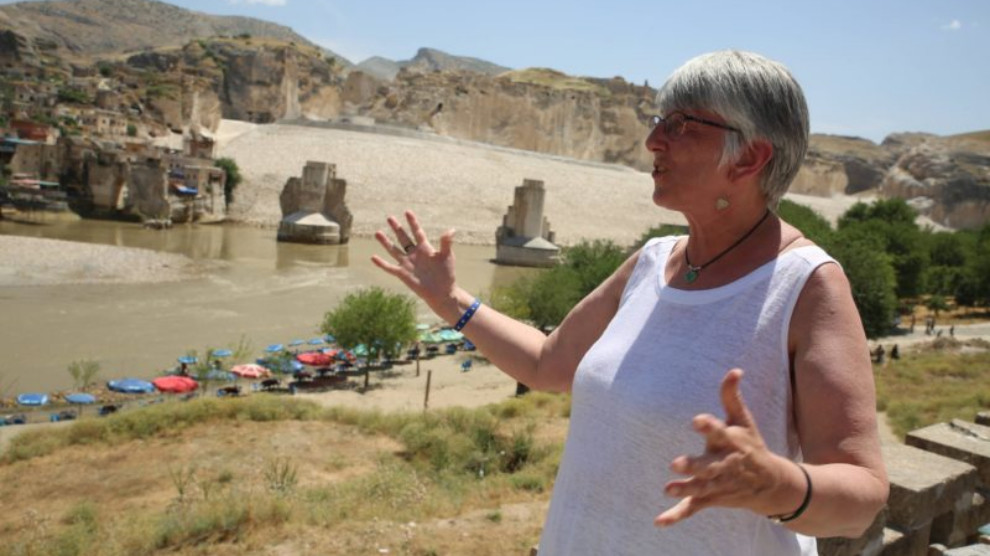Member of the European Parliament, Julie Ward, sent a letter to UK Foreign Secretary Dominic Raab, urging him to make representations to the Turkish government regarding the threat to Hasankeyf and the negative impacts of the Ilisu Dam.
The letter was also signed by Prof Felix Padel and Henry Brooks, Kurdish Solidarity Cymru.
Julie Ward MEP wrote: "In mid-July our small delegation from Wales and England traveled to the city of Hasankeyf in south- east Turkey. Some of us had undertaken this long journey previously at the invitation of local MPs and other dignitaries who are reaching out to the international community for civic solidarity."
The letter continued as follows: "Our journey to Hasankeyf 2 weeks ago was principally to witness and take part in a protest against the construction and filling of the hydroelectric Ilisu Dam which is now mostly complete. The dam has not yet been filled with water despite a test flooding of some local roads. However, if the dam is filled Hasankeyf and the surrounding villages will be 80% submerged under 60 metres of water.
Hasankeyf is around 12,000 years old. Sitting on the Tigris river it has been home to many of the world’s earliest and most impressive civilisations, from the Hurrians and Assyrians to the Roman, Byzantine and Ottoman empires. Hundreds of identified archeological sites are still unexcavated. The completion of the Ilisu Dam will destroy this rich cultural heritage. The Turkish state has made some effort to relocate a number of monuments from the city but in the process of relocation itself the cultural heritage is being destroyed. Countless more artefacts - discovered and undiscovered - remain at risk from the dam.
Today Hasankeyf’s population includes a mix of Kurds, Arabs and Turks. Many families have lived in and around Hasankeyf for generations. These communities will be displaced and destroyed with the completion of Ilisu Dam. “New Hasankeyf” is being built nearby but its housing is inadequate and expensive to the point of being inaccessible to many previous residents. Because of debts taken on to purchase new homes thousands face impoverishment. Kurdish communities are particularly at risk, and this displacement amounts to yet another attack by the Turkish state upon vulnerable cultural and linguistic traditions.
Further up- and downstream, many fragile ecosystems on the banks of the Tigris are at risk. The dam is designed to last no more than 100 years, but the environmental damage could be irreversible. The
Mesopotamian marshes in southern Iraq, home to the Marsh Arabs and declared a UNESCO world heritage site in 2016, are at risk of being drained with the completion of the dam.
Geopolitically, the building of the dam amounts to a power grab by Turkey. The dam would give Turkey a great deal of power over the supply of water continuing downstream through Iraq, including to the cities of Mosul and Baghdad.
Campaigners in Turkey, Iraq, Iran and all over the world have raised geopolitical, cultural and environmental concerns about the Ilisu Dam during the last three decades, and this is now at a crucial juncture. The dam is well developed but, as goes an often-repeated slogan by campaigners, “It is not too late to save Hasankeyf”.
The signatories urged the Foreign Secretary "to make representations to the Turkish government regarding the threat to Hasankeyf and the negative impacts of the Ilisu Dam."
The signatories also urged the Foreign Secretary "to visit the city of Hasankeyf yourself as we did, to meet its residents and learn of their struggles. We could help facilitate such a trip. Most of all, we urge you to speak up in defence of this unique and internationally important city, to defend it lest it is lost not only to those who live in Hasankeyf but lost to the whole world."












